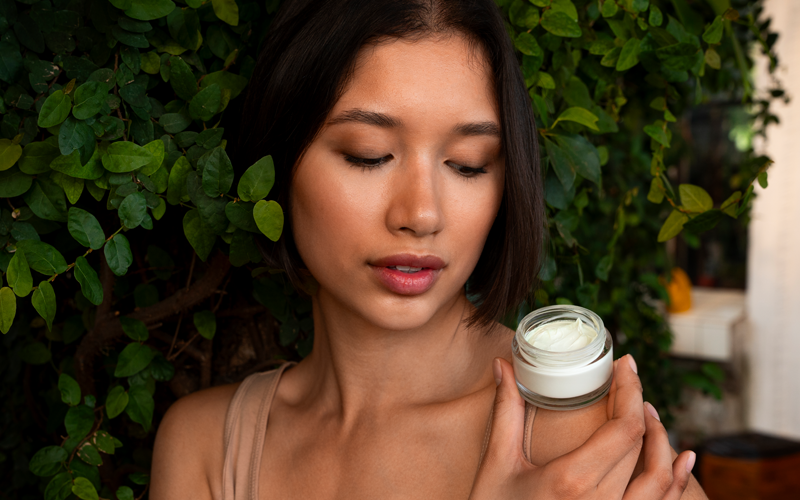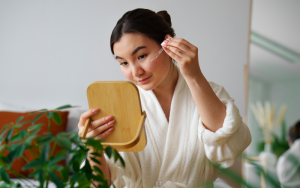Natural Ingredients for Skincare: What to Look For and Why They Matter
In recent years, the trend towards natural skincare has gained significant momentum. As consumers become more conscious of the ingredients in their beauty products, many are turning to nature for effective solutions. Natural ingredients are not only beneficial for the skin, but they also tend to be gentler and more environmentally friendly than synthetic alternatives. In this guide, we’ll explore some key natural ingredients to look for in skincare products and why they matter.
The Benefits of Natural Ingredients
- Gentle on the Skin: Natural ingredients often have fewer irritants and allergens compared to synthetic chemicals, making them suitable for sensitive skin.
- Rich in Nutrients: Many natural ingredients are packed with vitamins, minerals, and antioxidants that nourish and protect the skin.
- Sustainable and Eco-Friendly: Natural skincare products typically have a lower environmental impact, especially when sourced sustainably.
- Less Chemical Exposure: By choosing natural ingredients, you reduce your skin’s exposure to potentially harmful chemicals often found in conventional products.
Key Natural Ingredients to Look For
- Aloe Vera
- Benefits: Known for its soothing and hydrating properties, aloe vera is excellent for calming irritated skin and providing moisture. It’s also rich in vitamins C and E, which help improve skin health.
- Uses: Look for aloe vera in gels, moisturizers, and masks to hydrate and soothe the skin.
- Coconut Oil
- Benefits: Coconut oil is a powerful moisturizer that penetrates deeply into the skin. Its antibacterial and antifungal properties can help prevent breakouts and nourish dry skin.
- Uses: Ideal for dry skin types, coconut oil can be found in creams, lotions, and body oils.
- Shea Butter
- Benefits: This natural fat extracted from the nuts of the shea tree is renowned for its intense moisturizing properties. It contains fatty acids that help to nourish and protect the skin barrier.
- Uses: Look for shea butter in body creams, lip balms, and hand lotions for added hydration and softness.
- Jojoba Oil
- Benefits: Jojoba oil closely resembles the natural oils produced by our skin, making it an excellent moisturizer that balances oil production without clogging pores. It’s also rich in vitamins E and B, which promote skin health.
- Uses: Jojoba oil is versatile and can be used in facial oils, serums, and moisturizers.
- Tea Tree Oil
- Benefits: Renowned for its antibacterial and anti-inflammatory properties, tea tree oil is a popular choice for acne-prone skin. It helps reduce redness, swelling, and the size of blemishes.
- Uses: Look for tea tree oil in spot treatments, cleansers, and toners designed for oily or acne-prone skin.
- Honey
- Benefits: Honey is a natural humectant, which means it attracts and retains moisture in the skin. Its antibacterial properties also make it effective for treating acne and promoting healing.
- Uses: Incorporate honey into your skincare routine through masks, cleansers, or moisturizers for added hydration and glow.
- Green Tea
- Benefits: Rich in antioxidants, particularly catechins, green tea helps combat free radicals and reduce signs of aging. Its anti-inflammatory properties also soothe irritated skin.
- Uses: Look for green tea extract in serums, masks, and eye creams for its protective benefits.
- Rosehip Oil
- Benefits: Packed with essential fatty acids and vitamins A and C, rosehip oil is known for its anti-aging properties. It helps improve skin texture, reduce scars, and promote a brighter complexion.
- Uses: This oil can be used in facial serums and creams for added nourishment and rejuvenation.
How to Incorporate Natural Ingredients into Your Routine
When looking for skincare products with natural ingredients, consider the following tips:
- Read Labels: Look for products labeled as “natural” or “organic,” and check the ingredient list to ensure that the key ingredients are included.
- Patch Test: Always perform a patch test when trying a new product to ensure it won’t irritate your skin.
- Research Brands: Opt for reputable brands known for their commitment to quality and transparency in ingredient sourcing.
- DIY Skincare: Consider creating your own skincare products using natural ingredients. Simple recipes for masks and scrubs can be made using ingredients like honey, oatmeal, and essential oils.
Conclusion
Natural ingredients in skincare offer a wealth of benefits, from gentle hydration to powerful healing properties. By understanding what to look for and why these ingredients matter, you can make informed choices that contribute to healthier, more radiant skin. Whether you prefer store-bought products or DIY solutions, embracing the power of nature can lead to a more effective and enjoyable skincare routine.




Add comment